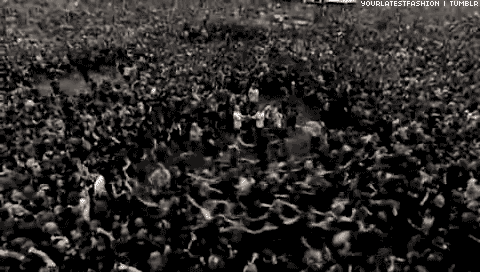I could talk about this subject all day but I'll try to keep this short(ish).
The Prime Directive,
as a principle, is moral cowardice masquerading as mystical fatalism. The stated rationale that there is some natural progress -- a divine plan -- for each species in the universe. Setting aside the theistic presumptions of this rationale (keep it short, keep it short...), it is just logically inconsistent. If there was such a divine plan, then the Federation, Starfleet, etc. would be part of that plan. It would not be possible for Federation interference to disrupt that plan because the Federation, too, would be following its "natural progress". The logical inconsistency is this: for this divine plan rationale to work, the Federation/Starfleet requires agency (in this case, the ability to choose to interfere or not interfere) while the potential targets of that interference are afforded no agency, as their natural progress is taken as some predestined path.
My interpretation, however, is that this inconsistent fatalism is just window dressing for the true reason for the Prime Directive, which is abdication of moral accountability. To use the
trolley problem example that I alluded to previously in the shoutbox, Starfleet's position seems to be that so long as it does not the touch lever that switches the tracks, it is not responsible for the outcome. Starfleet prefers to keep its hands clean, even if the outcome of that decision is objectively worse than the alternative. This perspective neglects to acknowledge that
choosing not to act is, itself, a choice. If you are in a position to move that lever, then regardless of whether you touch it, you are choosing what position it will occupy whether by action or inaction. You decide the outcome, and you are therefore responsible for that outcome.
Starfleet tries to dress up this unwillingness to take responsibility with half-reasoned rhetoric about the natural course of history and so forth. But to me, it seems clear that the true rationale is fear. If you touch it, you own it, and Starfleet doesn't want the responsibility.
All that said... the Prime directive,
as a rule, might actually be a good idea. Because the situations we're talking about, where the course of a species' evolution or civilization's progress might be altered, truly are an awesome responsibility, and never one to take lightly. A Starfleet officer should absolutely fear for their career (or worse) if they screw that up.
It is my belief that no individual should ever take an immoral action (and I would consider inaction in the trolley scenario immoral) just because the moral action would violate a rule. I don't care what oaths an officer has taken, you should do the right thing. But you also need to submit yourself to judgment afterward, defend your reasoning and, if necessary, face the consequences. That's how bad rules change for the better.


